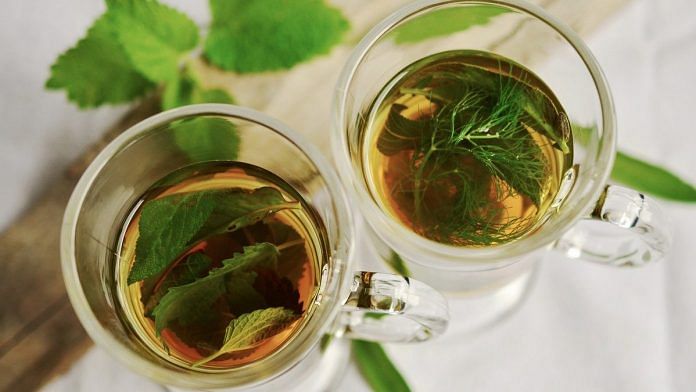In India, 3% to 22% of adult Indian women suffer from polycystic ovary syndrome or PCOS and are struggling to find suitable solutions to manage the symptoms. Many women are not even aware that they have PCOS. The syndrome is defined by a combination of symptoms that affect ovulation, generate cysts in ovaries, increase the production of male hormones such as testosterone, acne, excessive hair growth, weight gain, black patches on the skin, and irregular menstrual cycle. The aetiology of PCOS is not yet known by medical professionals. However, a group of factors – genetic predisposition, insulin resistance, and chronic inflammation are found to be responsible for the onset of PCOS and progressive complications.
Women often complain about receiving confusing information on how to manage PCOS. Internet gurus, social media bloggers, and budding fitness enthusiasts are coming up with thousands of quick remedies to manage PCOS that includes supplements, herbal teas, concoctions, etc. Most of these products, however, are not regulated by competent authorities and lack sound scientific evidence. Women living with PCOS may worsen their condition by taking multiple methods of treating the symptoms, such as drinking countless cups of herbal teas.
I am noticing that herbal teas have come to be regarded as the single-point solution for common health conditions in India including obesity, type 2 diabetes, and PCOS. However, there is insufficient data to prove their claim as ready reckoners in managing complex health conditions such as PCOS.
Also read: Indians are Vitamin D deficient. And no, it can’t be fixed by diet alone
Herbal teas are soothing but not the solutions
A small body of research revealed a few beneficial effects of herbal teas in managing common symptoms of PCOS such as hirsutism or excessive hair growth. In 2010, Paul Grant conducted a randomised control trial (RCT) and found a significant reduction in testosterone levels in 41 women who drank spearmint tea twice a day. However, there was no change in hirsutism and Grant mentioned the study was not long enough to draw any concrete conclusion.
The role of green tea in weight loss, managing diabetes types, and high cholesterol is well-documented. An RCT from 2017 reported 5% weight loss and decreased levels of insulin and testosterone in 60 overweight-PCOS women who consumed green tea for 12 weeks. The study cited multiple other studies with similar research designs that demonstrated the beneficial aspects of green tea in promoting weight loss and managing insulin resistance.
Unfortunately, teas alone cannot offer a long-term solution for PCOS. Moreover, the extravagant notion around various herbal teas in managing PCOS is overhyped and misleading. To manage PCOS effectively, women need to modify their lifestyle, including eating healthy, regular physical activity, managing stress, and ensuring quality sleep.
Address insulin resistance with low-carb diet
Women with PCOS produce more insulin than others but are unable to utilise insulin effectively in lowering blood glucose levels. This condition is known as insulin resistance and increases the risk of type 2 diabetes and dyslipidemia. Additionally, high levels of insulin may also lead to higher production of testosterone in women with PCOS and insulin resistance.
To address insulin resistance and promote sustained weight loss, a PCOS diet excluding large amounts of refined carbohydrates and starch is essential, especially for women with a higher body mass index (BMI). As part of a balanced diet, prioritise protein with each meal, as well as incorporate healthy fats such as nuts and seeds. Controlling insulin resistance begins with the right choice of carbohydrates. Eat high-fibre foods – cruciferous vegetables (broccoli, cauliflower), green leafy vegetables, beans, pulses, pumpkin, bottle gourd, and winter squash to avoid a sudden spike in blood glucose level. Inflammation can also be reduced by eating colourful vegetables and fruits. Choose oats, millets, barley, and quinoa as your preferred whole grains. Just be sure that your total carbohydrate intake is less than usual.
Avoid packaged, ultra-processed, junk food as much as you can. Personalised counselling with a nutrition expert is crucial to customise individual meal plans, address food cravings, manage emotional eating, and stay away from misinformation. You need to do it right.
Also read: ‘Health’ drinks for diabetes care in India have more chemical than essential nutrients
Making exercise a habit
Exercising at least 150 minutes a week is a must. Move more by taking a walking break while you are at a day-long desk job. Taking stairs, walking your dog, standing, and stretching every 30 minutes are some convenient ways to increase your number of steps per day. Exercising immensely helps with insulin resistance, reducing the risk of cardiac illnesses, lessening reproductive complications, and most importantly improving your psychological well-being.
Bottomline
PCOS symptoms affect your mood, make you feel frustrated. Furthermore, losing weight in PCOS is challenging and needs to be accomplished by small sustainable steps rather than jumping into an aggressive mode to lose weight faster. Be kind to yourself and take proactive steps towards getting the best regimen that will suit your lifestyle and health goal. A balanced, whole-food-based diet is essential for managing any health condition, including PCOS. No single food such as herbal tea or supplements can address the condition alone. You can always include tea as part of your balanced meal as suggested by your nutrition coach.
Dr Subhasree Ray is Doctoral Scholar (Ketogenic Diet), a certified diabetes educator, and a clinical and public health nutritionist. She tweets @DrSubhasree. Views are personal.
(Edited by Prashant)



